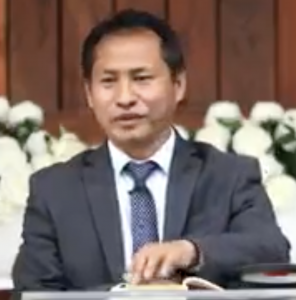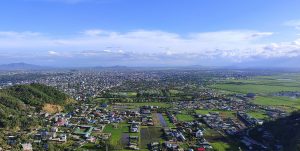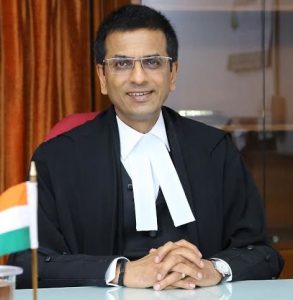Over 45,000 people (mainly Christians) are living in temporary accommodation, in over three hundred relief camps, in the northeastern state of Manipur following sustained rioting earlier this month. Over seventy people (mainly Christian) have been killed and some 230 wounded in the violence. Thousands of Indian troops have been sent to the state to restore order.
Food is reported to be scarce in the camps and a curfew across the state is being enforced by the Indian army and paramilitary troops. Shops, schools and offices are closed and the internet remains suspended. One relief volunteer in the town of Churachandpur described it as “a civil war situation”.
Around one hundred churches and the homes of over 1,700 Christians along with thousands of cars belonging to Christians were destroyed or severely damaged in the large-scale rioting. It followed a protest rally on 3 May attended by tens of thousands of tribal people (mainly Christian) protesting against a decision of the Manipur High Court that the majority Meitei tribe (mainly Hindu) be given special status previously reserved for the tribal peoples. The hill tribes fear that, if the Meitei are granted Scheduled Tribe status, ethnic minorities will lose control of their ancestral lands.
An Open Doors partner said that the rally had been peaceful, and that Christians had been “heavily victimised” in a “flagrant display of violence and destruction and catastrophe”.
“It is the Christian community who was basically targeted,” he said. “Reports suggest that more than one hundred churches have been burned down. Many casualties have happened, but we are not able to establish how many. But 80 per cent of the people who have been killed are Christians. Everything which had a Christian identity or Christian mark was attacked by the majority community in Manipur.” Christian demonstrators and onlookers complained that the police failed to intervene and protect them during the worst of the attack.
The fate of Meitei Christians was of particular concern, the Open Doors partner said, because they felt “rejected by both groups”. They were “severely victimised” and “under immense pressure to reconvert”.
“The Meitei community control the resources. They have higher political representation. The government had failed to protect Christians, because of a “lack of political willpower”.
 On the second day of rioting, Rev Zuankamang Daimai of the Manipur Baptist Convention Centre said, “We urge the federal government to step in immediately. Else, I am afraid the people of Manipur may witness things that have not happened in the past. The situation is out of control. Our people are in shock, praying for peace. The Meitei ethnic group acts as if it is above the law while minority ethnic groups are hiding for their lives.”
On the second day of rioting, Rev Zuankamang Daimai of the Manipur Baptist Convention Centre said, “We urge the federal government to step in immediately. Else, I am afraid the people of Manipur may witness things that have not happened in the past. The situation is out of control. Our people are in shock, praying for peace. The Meitei ethnic group acts as if it is above the law while minority ethnic groups are hiding for their lives.”
Background
Manipur is located high in the Himalayas and the state has a population of approximately three million people. It borders the Indian states of Nagaland, Mizoram and Assam and shares an international border with Myanmar to its east.
 The majority Meitei tribe is predominantly Hindu and comprises around 60 percent of the population and lives mostly in the state capital, Imphal, and throughout the Imphal valley (pictured). The ethnic minority “hill tribes” (mostly Naga and Kuki tribes) are predominantly Christian and comprise around 40 percent of the population. They live almost exclusively in the surrounding hills. As Scheduled Tribes their ancestral lands are protected and their people are eligible for low-cost bank loans and government jobs as part of a government affirmative action programme to help facilitate their advancement.
The majority Meitei tribe is predominantly Hindu and comprises around 60 percent of the population and lives mostly in the state capital, Imphal, and throughout the Imphal valley (pictured). The ethnic minority “hill tribes” (mostly Naga and Kuki tribes) are predominantly Christian and comprise around 40 percent of the population. They live almost exclusively in the surrounding hills. As Scheduled Tribes their ancestral lands are protected and their people are eligible for low-cost bank loans and government jobs as part of a government affirmative action programme to help facilitate their advancement.
Tribal leaders say the Meiteis are already better off and dominate the government, police and civil service. They say that granting them more privileges would be unfair.
A statement from the Evangelical Fellowship of India, issued by its general secretary the Rev Vijayesh Lal, on 11 May, urged “all parties involved to exercise restraint and work towards a peaceful resolution of the issues. We urge the people of Manipur to avoid forces that instigate division and cause polarisation. We also appeal to the state and the union government to engage in constructive dialogue with all stakeholders to address the underlying causes of the conflict.”
Looking to a future solution, Moses Varte, a Kuki in Churachandpur, said “separation is the only answer”, adding “This was ethnic cleansing of the hill people. Now we can only feel safe as a minority if we have our own state.”
Supreme Court direction
 On 17 May, India’s Supreme Court directed the state government of Manipur to report on all the security, relief and rehabilitation efforts made for those affected by the violence. Chief Justice Dhananjaya Chandrachud (pictured) strongly criticised the decision of the Manipur High Court to grant Scheduled Tribe status to the dominant Meitei tribe stating “It is completely factually wrong and we have to take a strong view against it now.” The Supreme Court did not stay the Manipur High Court direction to grant Scheduled Tribe status to the Meitei as it is currently being appealed in Manipur.
On 17 May, India’s Supreme Court directed the state government of Manipur to report on all the security, relief and rehabilitation efforts made for those affected by the violence. Chief Justice Dhananjaya Chandrachud (pictured) strongly criticised the decision of the Manipur High Court to grant Scheduled Tribe status to the dominant Meitei tribe stating “It is completely factually wrong and we have to take a strong view against it now.” The Supreme Court did not stay the Manipur High Court direction to grant Scheduled Tribe status to the Meitei as it is currently being appealed in Manipur.
(Church Times, Guardian, Open Doors, Religious Liberty Prayer Bulletin, Times of India, Union Catholic Asian News, Wikipedia)
Image Credits: UCAN, Manipur Baptist Church, Wikipedia
